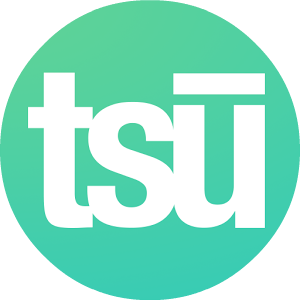A | B | C | D | E | F | G | H | I | J | K | L | M | N | O | P | Q | R | S | T | U | V | W
Search Engine (SE)
A search engine is a program that allows the user to type in a search query and then searches for the query string in predefined locations. It will then provide a list of matches ordered by relevancy. Online search engines (such as Google, Yahoo and Bing) perform this task on the internet allow users to look for websites that best match their query.
Search Engine Optimisation (SEO)
Search engine optimisation is the process of taking a website and trying to make it appear as high in the search engine results pages as possible. There are a variety of stages in successfully optimising a website starting with selecting which keyphrases the site is being optimised for. After that the design, code and content is tweaked to make it as relevant to the keyphrase as possible, while ensuring it remains search engine spider friendly. The final step is to launch an on-going offsite campaign to try and gain quality links back to the website.
Search Engine Marketing (SEM)
Search engine marketing is the broad name used to refer to any marketing campaign that aims to derive traffic from search engines. SEO comes under the SEM umbrella as does more traditional marketing techniques such as pay per click advertising.
Search Engine Spam
Search engine spam is any page that has been promoted for a high traffic keyphrase that is completely irrelevant to the content on the website. It is the aim of the search engines to try and eradicate spam and provide the most accurate results for the users.
Search Engine Results Page (SERP)
This is the page that is displayed after a user has performed a search on a query. These pages vary from search engine to search engine but they tend to have certain features in common. The all provide a list of usually 10 organic results, most provide some paid links in a sidebar and they usually supply suggestions of similar long tail keyphrases that might yield more appropriate results.
Site Map (HTML)
A site map is a page on a website that provides an organised list of links pointing to every page that is part of the web site. Site maps are beneficial to both users and search engine spiders, for users it gives them a quick page from which they can navigate to anywhere on the site, and for spiders it provides a single page from which they can crawl every other page on the site. This means that the webmaster will know that the spider will be able to reach and index the whole site.
Site Map (XML)
An XML site map is a file kept in the root directory of a website. These are purely for the benefit of search engine spiders which can easily scan these documents and figure out where needs indexed. The file also contains information on how often pages are updated meaning that the spiders can tell roughly how often they should return to the site. Google has a function where they allow webmasters to submit an XML sitemap and request that their site is crawled often resulting in faster indexing.
Safari
Safari is an Internet browser that is a popular choice amongst Apple users.
Social Media
Social media websites are those which allow and encourage interaction between internet users. Examples of social media sites include: Blogs, forums, wikis, review sites, recommendation sites (i.e. digg) and social networking sites (facebook, twitter).
Social Media Marketing (SMM)
Social Media Marketing is a relatively new concept and is based around utilising social media websites to build brand awareness and promote businesses through social media websites.
Social Networking
Social networks, such as facebook, twitter and myspace, allow users to create profiles and friends lists. They are then able to post notes or blogs and engage in two-way communication with other users.
Spamdexing
Spamdexing is the process of taking a website and deceptively modifying it to try and achieve higher search engine rankings. A variety of black hat techniques are used to do this; thankfully search engines have developed and are now relatively successfully at finding and penalising search engine spam sites.
Spider
A search engine spider (also referred to as a bot or a crawler) is sent out by search engines in order to find websites, crawl their content and then add them to the search engines indexes.
Splash Page
A splash page is a webpage that typically contains only a large image, or flash animation, and little to no text. These pages are designed to look good to humans but they can often prove detrimental to SEO efforts. If a splash page is absolutely necessary it is vital to take care and ensure that bots are able to follow it and that all the pages within the site are properly indexed.
A | B | C | D | E | F | G | H | I | J | K | L | M | N | O | P | Q | R | S | T | U | V | W


